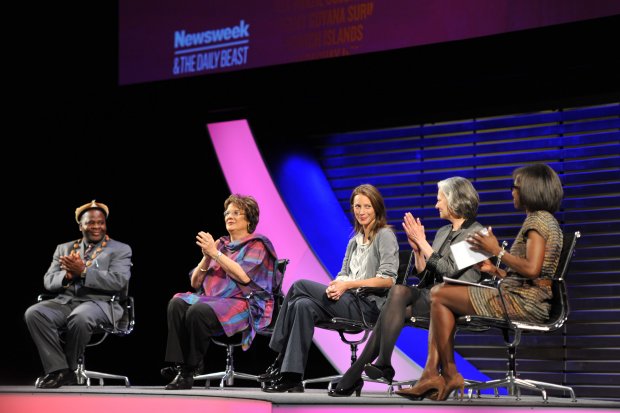Why Should Women Die Like Goats?
Published on April 7, 2013 at 10:42 AM by FACE OF MALAWI
In Malawi, one in 36 mothers dies in childbirth—but even the U.S., which ranks 50th in the world in maternal mortality, has a long way to go in saving mothers after childbirth.
Kwataine Masina, a senior chief in Malawi, can sum up with just one story why he is working to stop maternal deaths after childbirth in his nation.
Before he was a chief, a traditional birth attendant came to consult a woman in his village who was in labor. But the baby was breech—and traditional beliefs say that breech births are the result of being bewitched. The woman had gone into labor between 5 and 6 a.m., but because no one knew what to do about her labor complications, it wasn’t until around 7 p.m. that some men in the village began to carry her to the hospital. Before they traveled just one kilometer, she had died. She lost too much blood.
“I saw it with my own eyes,” Masina recalled. When he took over as chief, “I made it clear I would never let a woman die during a traditional birth.”

Senior Chief Kwataine Masina, board chairperson, Presidential Initiative on Maternal Health and Safe Motherhood, Malawi; Molly Melching, founder and executive director, Tostan; Christy Turlington Burns, founder, Every Mother Counts; Julie L. Gerberding, M.D., M.P.H., president, Merck Vaccines; and Deborah Roberts, network correspondent, ABC News, on “Saving Mothers: A Surprising Solution.” (Roxxe Ireland/Marc Bryan-Brown)
So began the “Saving Mothers” panel, dedicated to finding solutions for saving mothers from death during childbirth, at the fourth annual Women in the World Summit on Friday. The panel was sponsored by Merck and moderated by ABC News’s Deborah Roberts. Alongside Masina, who is also the board chairperson of the Presidential Initiative on Maternal Health in Malawi, were supermodel Christy Turlington Burns, the founder of Every Mother Counts, an organization that works to end deaths during childbirth; Julie L. Gerberding, the president of Merck Vaccines; and Molly Melching, the founder and executive director of Tostan, a human-rights education program in Africa.
“Women need information—in their own language.”
Roberts mentioned the devastating statistic that an infant whose mother dies in childbirth is 70 percent more likely to die in the next few years. “This is an urgent, urgent problem,” she said.
Melching said traditional attitudes in Senegal, where she works, often end up harming the mother. She said many women hide their pregnancy, and there is the belief that hard work during pregnancy will lead to productive children.
“Women need information—in their own language,” Melching stressed. “Once they get the information, it changes everything. They have to know they have human rights, they have to know they have a right to be free from violence, to speak out.”
Gerberding called it “really tragic” to not know what to do when something goes wrong while in childbirth, “but it’s even more tragic to not do what you know.” She mentioned another shocking statistic: that the U.S. ranks 50th in maternal mortality worldwide.
While Masina joked that men are only “supportive enough,” he emphatically said “a woman has a right to life and also a right to health. Why should women die like goats? Because they want to give life?”
Melching said the effort to stop death after childbirth “takes more than a village … it takes a whole social network to make a difference.” The women organize, but the men have to participate as well.


